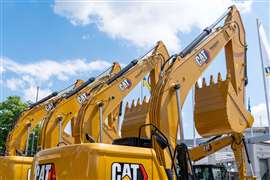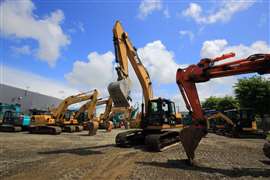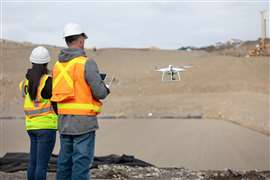EIB's green agenda
27 February 2008
The european investment bank (EIB) has launched a new lending policy for the transport sector, following a meeting of its Board of Directors in September. The Bank says it will put a greater emphasis on sustainability in its future lending on infrastructure projects.
According to the EIB, this policy is in response to EU targets to reduce greenhouse gas emissions. In March the European Council committed itself to a -20% reduction in greenhouse gasses by 2020, compared to 1990 levels.
EIB communications officer Juan Sterlin told CE, “The EIB is being more stringent. This is a reply to the development of EU policy. We are not making transport policy, we are an instrument of the EU, and we are trying to apply our lending policy in response to that.”
In order to qualify for EIB funding, transport projects already have to meet environmental standards. “We are putting then down on paper, and getting more concrete about criteria,” said Mr Sterlin. He added. “We are also giving more support in areas like research and development in the automotive sector to help cut emissions.”
But although the EU as a whole has set a firm objective for cutting greenhouse gasses, the EIB has no such quantifiable aim. “We don't have a target as such. We function on the basis of projects,” said Mr Sterlin.
Tens Commitment
Although the EIB does not rule it out, it seems the new policy will make it even more difficult for the bank to justify supporting airport infrastructure. An EIB statement said, “Airport projects will be supported when they demonstrate a high economic value (benefit), also taking into account the possible future reduction of demand due to emission charges on air travel.”
Mr Sterlin confirmed that the increased focus on sustainability was likely to modes of transport other than air. “This is being shown by more emphasis on rail, and less on the air sector,” he said.
Interestingly though, the EIB is still positive about road schemes as long as they “demonstrate appropriate economic returns.... Such as rehabilitation of dilapidated roads and new roads in highly congested settings.”
Mr Sterlin said, “New road projects can help relieve congestion, so they can be carbon neutral.”







